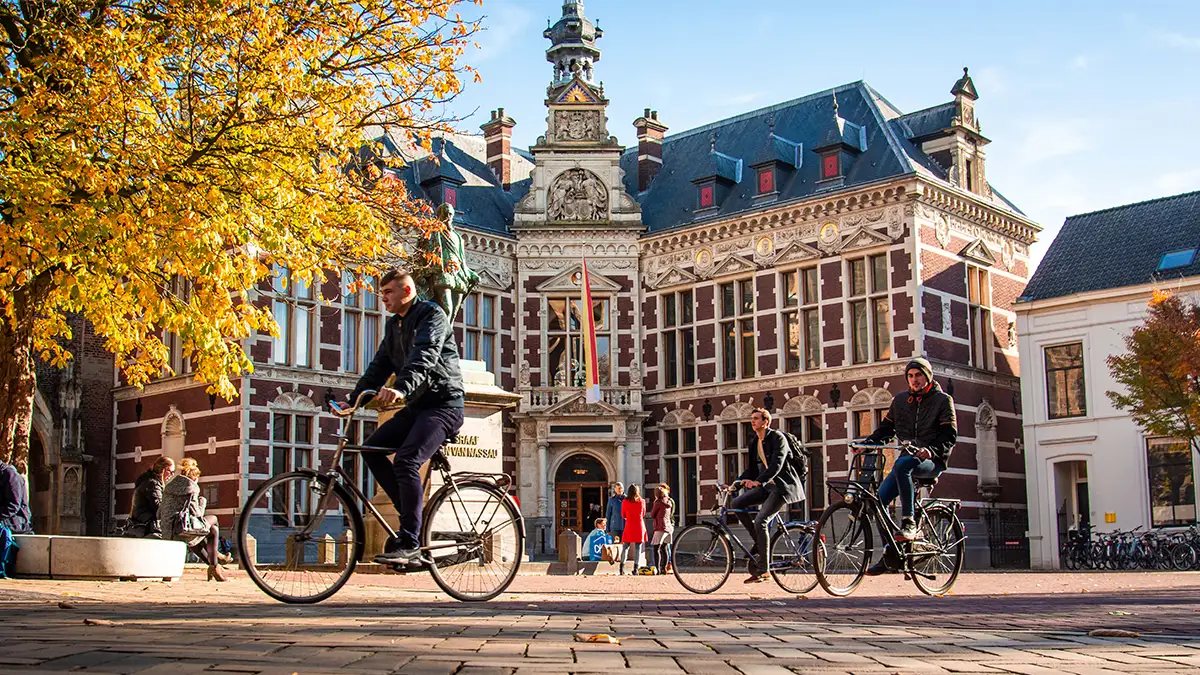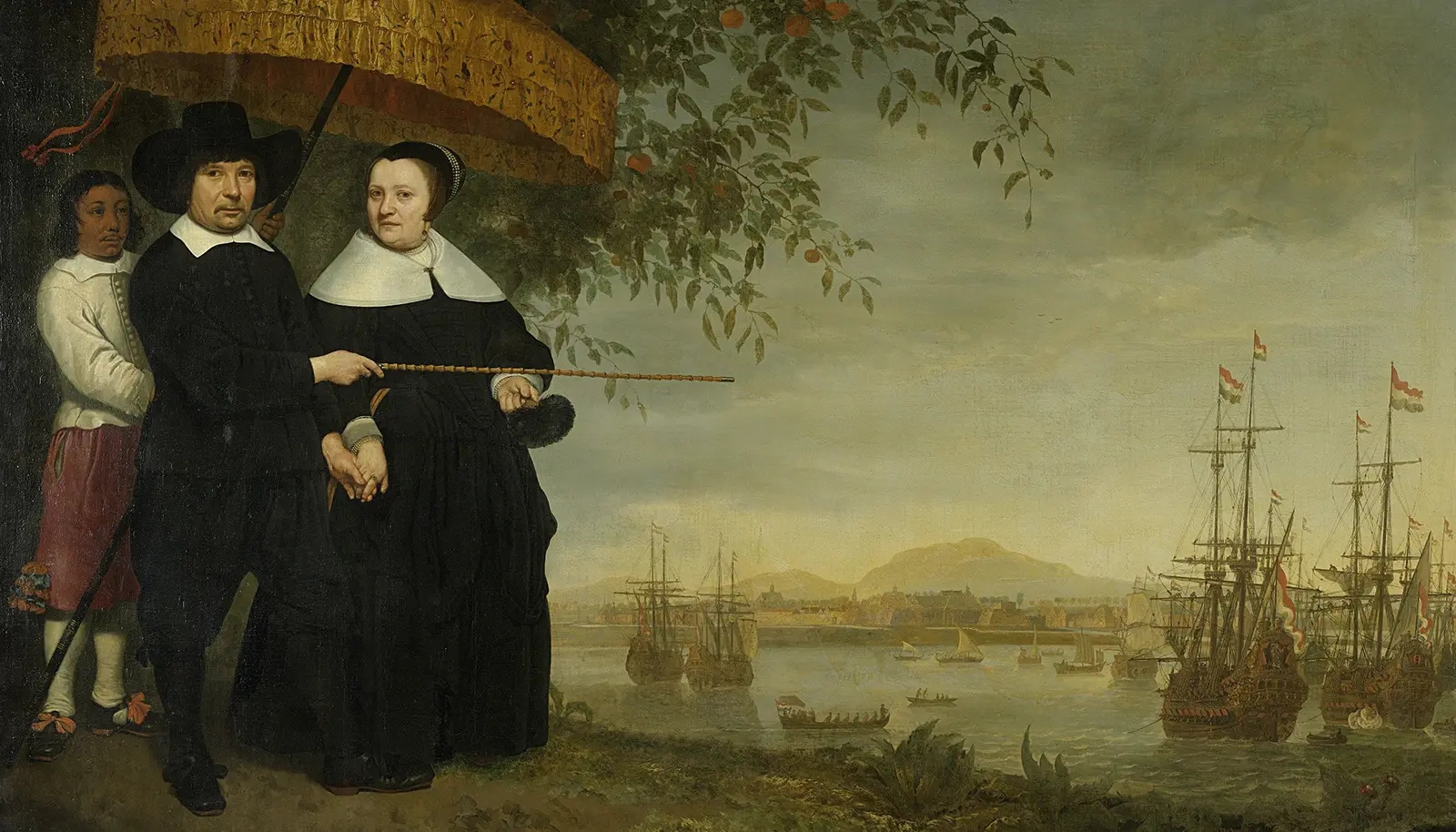
The Netherlands has established itself as one of the best countries for higher education. With a high standard of teaching, innovative approaches to learning, and a wide range of programs in English, the country attracts thousands of students from all over the world.
However, for students from non-EU countries, the admission process can be stressful and complicated, involving many legal requirements and procedures. In addition to choosing a study program and university, students need to consider visa issues, accommodation conditions, and the financial aspect of living in the country.
1. Understanding the Requirements
Not all Dutch universities accept students directly after high school, but having a high school diploma is a mandatory requirement for admission to a higher education institution. The specific educational requirements vary depending on the university and may differ based on the country where you completed your high school education. Usually, up-to-date information about the requirements for your diploma can be found on the university’s official website by specifying your country of residence or by contacting the university directly.
When you decide to apply, you will need to provide a notarized translation of your high school diploma or predicted final grades. The translation must be done into one of two languages: English or Dutch.
2. Application Process and Obtaining a Student Visa
2.1 Applying through Studielink
The application process for studying in the Netherlands begins with submitting an application through Studielink. In Studielink, students select their educational institution and program, upload the required documents, and track the status of their application. The university reviews the application and then makes a decision.
It is important to note that after submitting an application through Studielink and receiving an invitation to study, the university initiates the process of interacting with the Dutch Immigration and Naturalization Service (IND). This means that universities essentially act as intermediaries in the process of obtaining a student visa for international students. Your residency status in the Netherlands will depend on your academic performance, and the IND will monitor this process annually.
2.2 Obtaining a Student Visa (MVV) and Temporary Residence Permit (VVR)
For students coming from countries outside the EU, Schengen Area, or Switzerland, there are two main documents required for studying in the Netherlands: a long-term student visa (MVV) and a temporary residence permit (VVR).
The process of obtaining a student visa usually begins with the chosen university submitting an application on behalf of the student to the IND (Immigration and Naturalization Service). This process is known as the “Entry Visa Procedure” (TEV).
Main Steps:
- Confirmation of Enrollment: Before the university submits the application to the IND, the student must receive official confirmation of their admission.
- Financial Proof: A key requirement for obtaining a visa is proving financial stability. The IND requires students to provide evidence that they have sufficient funds to support themselves in the Netherlands (around €12,000-13,000 per year, with more precise information available on university and IND websites for your year of admission).
- Health Insurance Proof: Students must also have health insurance that covers their stay in the Netherlands to obtain the visa.
- Biometrics and Additional Documents: Students need to provide biometric data and copies of their passports, which must be valid for at least six months after the start of their studies. In some cases, a health certificate or additional tests may also be required.
Once the application is approved, the student is issued an MVV (student visa), which is valid for entering the country. After arriving in the Netherlands, the student must obtain a VVR (temporary residence permit), which allows them to stay in the country for the entire duration of their studies. Typically, the student is invited to participate in this process, and after receiving the residence permit, they must begin the registration process with the local municipality. If the student lives in university accommodation, it is likely that the university will inform them of the registration date and guide them through the process. If the student rents accommodation independently, registration at the residence address becomes their responsibility.
2.3 Financial Requirements
When obtaining a residence permit for studying in the Netherlands, certain obligations arise with the IND. The main requirement is to prove financial stability. This requirement ensures that the student can support themselves throughout the study period without relying on illegal sources of income.
The student must demonstrate sufficient funds to cover both tuition and living expenses. For 2024, the minimum amount required is around €12,000-13,000 per year. In the first year of studies, universities generally require the full amount of living expenses to be transferred to University bank account as proof of the student’s financial stability. After payment, which typically must be completed by the end of September, part of the sum intended for living expenses is refunded to the student’s bank account.
2.4 Deadlines for Submitting Documents
Deadlines for submitting documents depend on the university but usually start in mid-winter and last until April. It is recommended to begin the application process 3-6 months before the academic year begins, as the application review may take 4 to 8 weeks. It is important to note that if the student misses the deadline or submits incomplete documents, this may result in delays or even denial of the visa.
The MVV student visa allows the student to enter the Netherlands, but it is important to remember that the visa itself is not sufficient for long-term residence. After entering the country, the student must register with the municipality as soon as possible and apply for a VVR.
2.5 Application Outcome
Once the university submits the documents to the IND on behalf of the student, the student must monitor the process and provide additional data if needed.
Furthermore, renewing the residence permit in the future will be the student’s responsibility. You will not be automatically invited for this process.
3. Residence and Visa Renewal Requirements
To study in the Netherlands, international students must obtain a temporary residence permit (VVR). This permit allows them to stay in the country for the entire period of their studies and is issued after obtaining a student visa (MVV). The VVR is usually granted for the duration of the study program plus three months. For bachelor’s programs, this can be up to four years, and for master’s programs, up to two years.
Main Conditions for Obtaining VVR:
- Confirmation of enrollment in an accredited educational institution.
- Sufficient financial resources to live in the country.
- Health insurance covering healthcare expenses in the Netherlands.
- Proof of academic progress for renewing and maintaining the residence permit: Students must demonstrate academic progress each year, showing that they have successfully completed at least 50% of their study program annually.
3.2 Academic Performance Requirements for Visa Renewal
To renew the temporary residence permit, students must meet academic performance requirements. It is important for students to make progress in their studies, as universities are obligated to report to the IND annually about the student’s achievement of the minimum academic progress. Specifically, students must complete at least 50% of their study program for each academic year. Failing to meet this requirement may result in the refusal to extend the residence permit. These rules are outlined in Article 6.5 of the Code of Conduct for International Students in Dutch Higher Education.
Changing programs during the academic year does not guarantee renewal of the residence permit. The IND will still monitor whether 30 credits were earned at the previous university. It is also important to note that in the first year of studies, students are often required to earn 45 credits to continue their education.
In cases of poor academic performance, the university may petition the IND to extend the residence permit if the delay is due to objective reasons, such as health issues or family circumstances. However, such cases require documented proof.
3.3 Mandatory Registration Procedures: Municipality Registration, BSN Number, Health Insurance
Registering at your place of residence is mandatory upon arrival in the Netherlands, and failure to do so can result in an administrative fine. The first important procedure is registration at the municipality (gemeente). To register, you will need to provide:
- Your passport and visa,
- Proof of residence,
- Proof of university enrollment.
During registration, students are issued a BSN (Burgerservicenummer) — a unique identification number required for interactions with government services and for accessing medical and social services. The BSN is also needed for opening a bank account and for employment.
Health insurance is also mandatory in the Netherlands, and not having it can lead to fines. Often, in the first year, universities offer partnered insurance plans because students in the Netherlands, if not formally employed, cannot obtain Dutch health insurance. International students can access international health insurance, which must cover essential medical services. It is crucial that the insurance meets Dutch healthcare standards, as failure to comply may result in visa denial or refusal to extend the temporary residence permit.
4. Working During Studies
Student residence permits are generally not intended for work. However, there are certain rules that allow students to take up part-time jobs. Although such work won’t cover the full cost of further studies, it can help with day-to-day expenses.
4.1 Right to Work During Studies: Hour Limitations and Types of Employment
Non-EU students have limited work rights in the Netherlands. Under immigration law, students may work:
- Up to 16 hours per week during the academic year,
- Full-time (40 hours) during summer holidays (June to August).
To be employed, a work permit (TWV) is required, which must be arranged by the employer. You cannot apply to the IND yourself; your employer must do it for you, as they are recognized by the Dutch government as a visa sponsor. Processing this permit typically takes 4-5 weeks, so students should factor in these time frames when searching for work. Without a permit, students are not allowed to work legally, and violating this rule could result in visa cancellation and fines for the employer.
4.2 “Orientation Year” Visa for Job Search After Graduation
Upon completing their study program, international students can apply for the “Orientation Year” program (zoekjaar). This program grants graduates a one-year residence permit with the right to work without needing an additional work permit. This visa is available to graduates of Dutch universities or those from international universities ranked in the global top 200. Employers offering jobs must be registered with the IND as recognized sponsors.
Main requirements for obtaining the visa:
- A valid employment contract,
- Meeting the minimum wage requirements, which are updated annually by the IND. For graduates, the minimum threshold is lower than for other highly skilled migrants.
This type of visa provides the opportunity to stay in the country long-term and serves as a first step towards obtaining permanent residence.
5. Legal and Immigration Risks
5.1 Violation of Legal Requirements
Violating visa conditions is a serious offense and can lead to the cancellation of your residence permit. These risks are outlined in Article 16 of the Vreemdelingenwet 2000[1] and may include:
- Failure to meet visa conditions: If a student does not comply with the conditions under which their visa was granted, such as not maintaining full-time studies or not securing sufficient financial resources, it can result in visa cancellation. Each year, students will be required to fill out the Appendix Antecedents Certificate, confirming they have adequate means of support.
- Academic performance issues: As mentioned earlier, if a student fails to complete at least 50% of their study program for the year, the university is required to inform the IND, which may lead to a refusal to renew the residence permit.
- Violation of work regulations: Working without the appropriate TWV can also lead to visa cancellation.
- Failure to renew the residence permit on time: As previously mentioned, students will not be automatically invited to renew their residence permit. It is their responsibility to monitor the expiration date. You can apply for a permit renewal through your university’s immigration services three months before the permit expires. It is important to apply on time, as delays may result in a gap in legal residency (residence gap), meaning you would be in the Netherlands illegally for some time. In the future, this could lead to problems with renewing the student residence permit or obtaining other migration-related documents.
6. Conclusion
The key to successfully enrolling in the Netherlands is following immigration rules closely and practicing good time management. Understanding potential legal risks and how to avoid them, along with submitting documents early, will help students minimize the likelihood of problems related to their immigration status.
The Netherlands has numerous resources and support structures available to assist with the adaptation process. Seeking help from university services, legal professionals, and student organizations is an important step toward successful studies and integration into Dutch society.
[1] Vreemdelingenwet 2000, artikel 16(1)(a)






